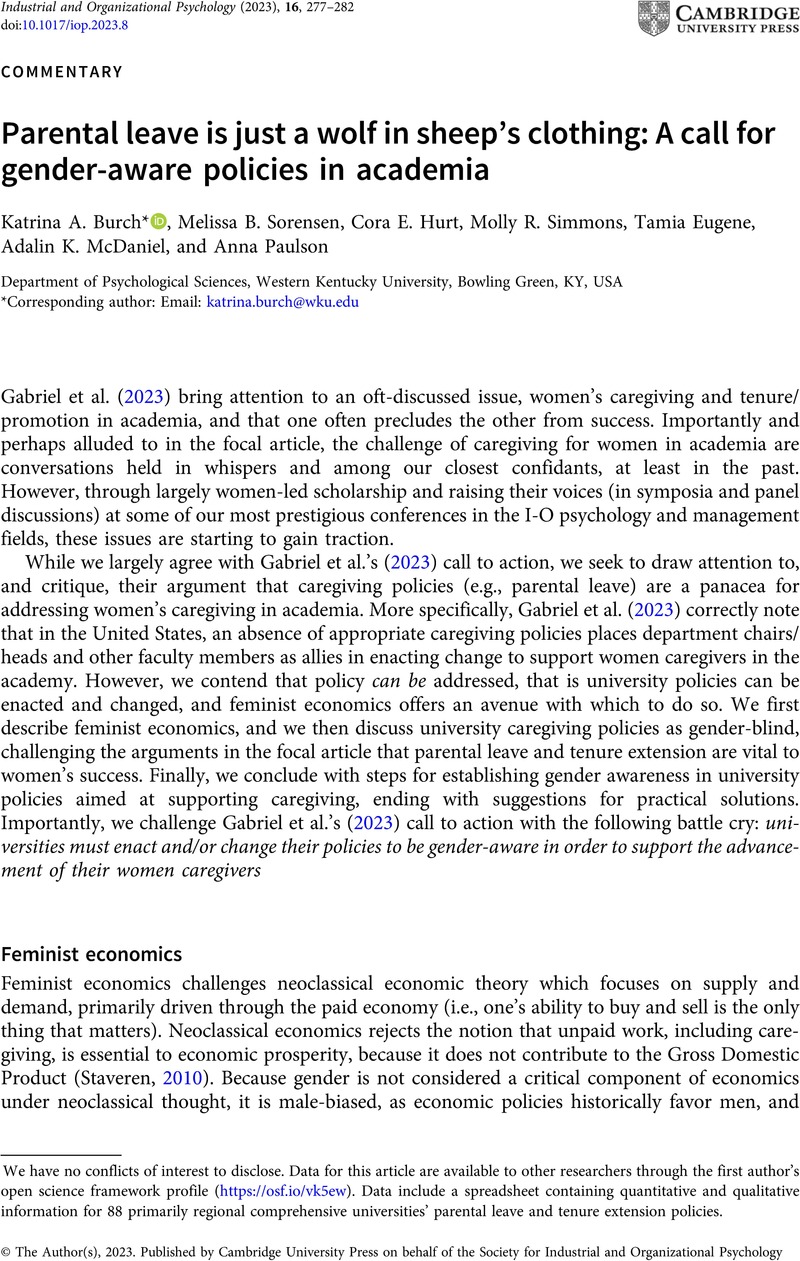Crossref Citations
This article has been cited by the following publications. This list is generated based on data provided by Crossref.
Webb, Nicole
2025.
Empowering Women in Academia.
p.
225.



